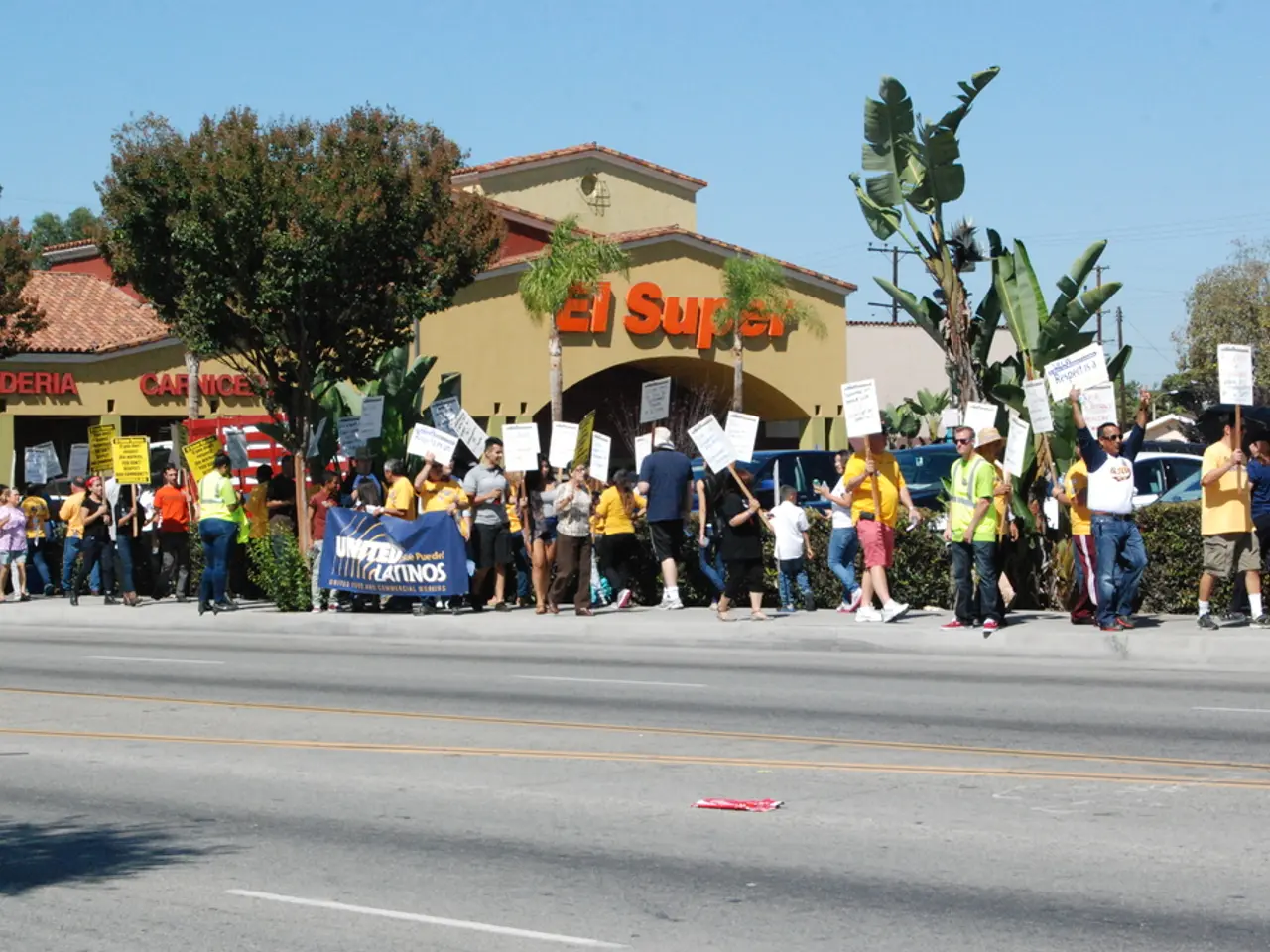Anti-Discrimination Legislation Required in North Rhine-Westphalia to Combat All Kinds of Discrimination
In North Rhine-Westphalia (NRW), a significant increase in right-wing extremism has been reported, according to the 2024 Report on the Protection of the Constitution. This surge is reflected in the rise of right-wing extremist offenses with a xenophobic background, which increased by 5.4% from 933 in 2023 to 983 in 2024.
Key areas of concern include coercion/threats, incitement to hatred and violence, property damage, antisemitic crimes, and attempted homicides. Categories such as coercion/threats increased by 32.6%, incitement to hatred and violence escalated by 24.4%, property damage linked to right-wing extremism more than doubled, antisemitic right-wing extremist crimes remained stable, and there were six attempted homicides motivated by right-wing extremism in NRW in 2024.
Attacks on collective housing for asylum seekers also increased significantly. Right-wing extremists exploited current issues like the Middle East conflict to promote anti-immigration and antisemitic agendas.
To combat this rising trend, federal and state authorities in NRW are enhancing cooperation, particularly in digital monitoring and hate speech enforcement. The Central Reporting Office for Criminal Content on the Internet (ZMI) has enhanced its detection and reporting tools, aiding in the identification of online hate crimes that rose sharply by 34% nationwide in 2024.
NRW's Interior Minister, Herbert Reul, emphasized the need for integrity both online and offline to combat hate speech effectively. The improved collaboration among law enforcement agencies, such as the Federal Criminal Police Office (BKA) and state-level authorities, is also noteworthy.
The creation of an independent anti-discrimination agency in NRW is still ongoing, with the aim to combat discrimination and improve cooperation with the Federal Anti-Discrimination Agency and other state actors. Although explicit details on the independent anti-discrimination agency’s internal status in NRW or its direct collaboration mechanisms were not found, the broader context shows a coordinated multi-level approach involving federal and state agencies, including intensified monitoring and enforcement against right-wing extremism.
The political and legal classification of the right-wing party Alternative for Germany (AfD) as a "confirmed right-wing extremist endeavor" by the Federal Office for the Protection of the Constitution (BfV) in 2025 further shapes the environment in which these agencies operate, aimed at improving protective and preventative measures against right-wing extremism.
In summary, right-wing extremism in NRW is on the rise, with federal and state authorities enhancing cooperation to combat hate speech and extremist propaganda in digital spaces. Independent anti-discrimination bodies work in this ecosystem, supported by federal infrastructure such as the BKA and ZMI, to better detect, report, and counteract extremism. The political and legal classification of groups like the AfD further influences the anti-discrimination efforts and cooperation frameworks, aimed at improving protective and preventative measures against right-wing extremism. This combined multi-agency approach aims to strengthen Germany’s resilience against rising right-wing extremist threats, including in NRW.
It is also worth noting that the latest "Mitte-Study" shows that 16.2 percent of the German population hold racist views, with 17 percent condoning violence. These findings indicate a concerning level of acceptance for hostile attitudes towards certain groups in the middle of German society.
References: [1] Source for attacks on collective housing for asylum seekers and exploitation of current issues: https://www.wdr.de/nachrichten/nrw/rechts-extremismus-in-nrw-steigt-an-100.html [2] Source for improved collaboration among law enforcement agencies: https://www.wdr.de/nachrichten/nrw/rechts-extremismus-in-nrw-steigt-an-100.html [3] Source for the classification of the AfD: https://www.tagesschau.de/inland/afd-rechts-extremismus-101.html
- The rising trend of right-wing extremism in North Rhine-Westphalia (NRW) has led to a surge in right-wing extremist offenses, particularly coercion/threats, incitement to hatred and violence, property damage, antisemitic crimes, and attempted homicides.
- To combat this rise, federal and state authorities in NRW, along with the Central Reporting Office for Criminal Content on the Internet (ZMI), are enhancing cooperation, intensifying monitoring, and enforcing hate speech online.
- The political and legal classification of the right-wing party Alternative for Germany (AfD) as a "confirmed right-wing extremist endeavor" by the Federal Office for the Protection of the Constitution (BfV) influences the anti-discrimination efforts and cooperation frameworks, aiming to improve protective and preventative measures against right-wing extremism.





